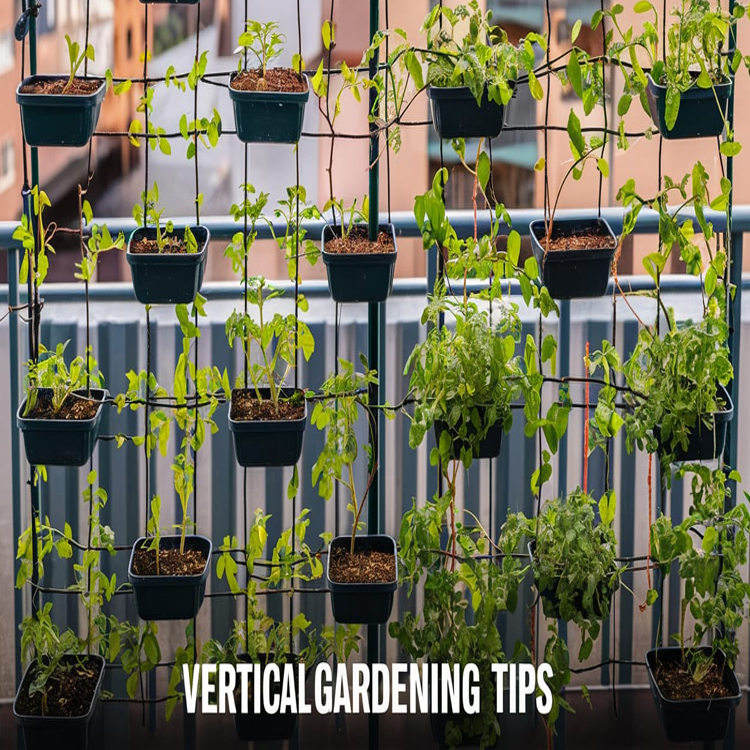Medicinal plants have been used since ancient times to cure various diseases and maintain health. This practice has been an integral part of various cultures around the world, from traditional Chinese medicine to Ayurveda in India. Plants such as ginger, turmeric and aloe vera are known to have extraordinary healing properties and are often used in herbal concoctions. In many cases, these medicinal plants offer safe and effective natural solutions compared to synthetic drugs. addition, with increasing awareness of the importance of a healthy lifestyle and returning to nature, the use of medicinal plants is increasingly in demand.

In this modern era, growing medicinal plants at home has become an increasingly popular trend. Many people are starting to realize that having a natural pharmacy in their backyard can provide a variety of benefits. Apart from providing health benefits, gardening medicinal plants can also be a fun and rewarding hobby. This activity not only helps reduce stress but also provides satisfaction when you see the plants grow well. This article will discuss various types of medicinal plants that are easy to grow at home, their benefits, how to care for them, and tips for maximizing the yield of your medicinal plants. With the right knowledge and care, you can enjoy the immediate health benefits of your own small garden.
Types of Medicinal Plants that are Easy to Grow at Home
1. Ginger (Zingiber officinale)
Ginger is one of the most popular medicinal plants and is easy to grow at home. rhizome has many health benefits, including:
- Relieves nausea and vomiting
- Reduces inflammation
- Improve the immune system
- Helps digestion
- Warm the body
How to plant ginger is quite easy. You can plant it in a pot or directly in the ground. Choose ginger rhizomes that are fresh and have shoots. Plant the rhizomes at a depth of approximately 5-10 cm, ensuring the buds are facing upwards. Ginger likes shady places and soil that is moist but not waterlogged.
2. Turmeric (Curcuma longa)
Turmeric is a medicinal plant known for its distinctive yellow-orange color. The benefits of turmeric for health include:
- Has anti-inflammatory and antioxidant properties
- Improves brain function and reduces the risk of Alzheimer’s disease
- Helps overcome digestive problems
- Strengthens the immune system
- Helps lower cholesterol
Planting turmeric is similar to growing ginger. Use fresh turmeric rhizomes with shoots, plant them in loose, nutrient-rich soil. Turmeric grows well in places that receive partial sunlight.
3. Aloe Vera (Aloe vera)
Aloe vera is a succulent plant that is easy to care for and has many health benefits. Some of the benefits of aloe vera include:
- Heals wounds and minor burns
- Moisturizing skin
- Helps overcome constipation
- Lower blood sugar levels
- Relieves symptoms of stomach acid
Aloe vera is easy to grow in pots or in the ground. Make sure the planting medium has good drainage because aloe vera is susceptible to waterlogging. Place the plant in a location that gets full or partial sun.
4. Mint (Mentha)
Mint plants not only provide a fresh aroma, but also have various health benefits:
- Relieves headaches
- Helps overcome nausea
- Increase concentration
- Freshens breath
- Helps digestion
easy to grow in pots or in the ground. This plant grows quickly and spreads, so it is best planted in a separate container. Mint likes moist soil and a location that gets partial sun.
5. Lemongrass (Cymbopogon citratus)
Lemongrass is an aromatic plant that is often used in cooking and traditional medicine. The health benefits of lemongrass include:
- Helps reduce stress and anxiety
- Improve digestion
- Has antimicrobial properties
- Helps lower cholesterol
- Relieves muscle and joint pain
Lemongrass is easy to grow in large pots or in the ground. This plant likes full sun and moist but well-drained soil. You can grow lemongrass from seeds or cut fresh lemongrass stalks and plant them directly.
How to Care for Medicinal Plants at Home
So that your medicinal plants grow well and provide maximum results, pay attention to the following care tips:
1. Site selection: Most medicinal plants like places that receive partial sunlight. However, some plants such as aloe vera can grow in brighter places.
2. Planting media: Use a soil mixture that is rich in nutrients and has good drainage. You can add compost or organic fertilizer to increase soil fertility.
3. Watering: Most medicinal plants require regular watering, but avoid excess water which can cause the roots to rot. Check soil moisture before watering.
4. Fertilization: Provide organic fertilizer regularly to maintain soil fertility and plant growth.
5. Pruning: Perform regular pruning to maintain the shape of the plant and stimulate new growth.
6. Pest control: Check plants regularly for pests or disease. Use organic pest control methods if necessary.
7. Crop rotation: For plants grown in the ground, rotate crops every few years to prevent depletion of soil nutrients and reduce the risk of disease.
How to Use Medicinal Plants
After successfully planting and caring for medicinal plants, you can use them in various ways:
1. Herbal tea: Make tea from fresh or dried leaves of medicinal plants such as mint, lemongrass, or ginger.
2. Essential oils: Extract essential oils from aromatic plants such as lavender or rosemary for aromatherapy.
3. Seasonings: Use fresh medicinal plants as spices to improve the taste and nutritional value of food.
4. Compress: Apply plant leaves such as aloe vera directly to the skin to soothe irritation or minor wounds.
5. Traditional concoctions: Make traditional concoctions such as herbal medicine from a mixture of various medicinal plants.
6. Natural preservatives: Some medicinal plants such as garlic have antimicrobial properties that can be used as natural preservatives.
Growing medicinal plants at home not only provides easy access to natural medicines, but is also a fun and rewarding hobby. By choosing the right type of plant, caring for it well, and using it optimally, you can enjoy various health benefits from the medicinal plants you grow yourself. Start by planting several types of medicinal plants that are easy to care for such as ginger, turmeric, aloe vera, mint and lemongrass. As time goes by, you can add to your collection of medicinal plants and expand your knowledge about their properties and how to use them.
Remember that although medicinal plants have many health benefits, their use should still be done wisely and should not replace professional medical care for serious health conditions. Always consult a doctor or herbalist before using medicinal plants to treat certain health problems. By growing medicinal plants at home, you are not only investing in the health of yourself and your family, but also contributing to the preservation of traditional knowledge about medicinal plants and supporting a more environmentally friendly lifestyle. Happy gardening and enjoying the benefits of the medicinal plants you grow yourself!



